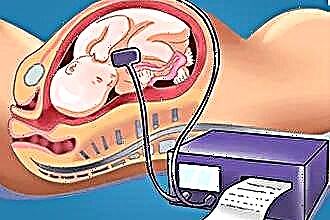A persistent cough creates inconvenience not only for the person himself, but also for the people around him. Not only does it not look aesthetically pleasing, it also interferes with others. It is good if the nature of the cough is non-infectious. And if this is not the case, then the person becomes a source of the spread of infection - after all, infected saliva with a strong cough flies up to 5 meters. How to cure a chronic adult cough?
Chronic or residual?
 First of all, you need to stop deceiving yourself and call things by their proper names. There is no term "chronic cough" in official medicine. If it lasts longer than two weeks after recovery, it is a residual cough, for more than a month it is chronic. And the sooner you pay attention to him and realize that there is a real problem, and not just a cough that "lingers" after an illness, the sooner you will get rid of it.
First of all, you need to stop deceiving yourself and call things by their proper names. There is no term "chronic cough" in official medicine. If it lasts longer than two weeks after recovery, it is a residual cough, for more than a month it is chronic. And the sooner you pay attention to him and realize that there is a real problem, and not just a cough that "lingers" after an illness, the sooner you will get rid of it.
Residual cough really does not require treatment, since this is a reflex act of cleansing the body of the remnants of accumulated mucus. Normally, it lasts up to 2-3 weeks after the completion of the course of treatment. It is not accompanied by severe attacks, the usual symptoms of respiratory diseases: runny nose, fever, weakness. From day to day it becomes weaker, less often and gradually finally disappears.
Chronic coughing is another matter entirely. It can even completely disappear for a while, depending on the type of disease that provokes it, but then it comes back again, and the attack flares up in full force. It is often accompanied by pronounced symptoms:
- constantly stuffy nose;
- mucus flowing down the back of the larynx;
- shortness of breath after seizures or aerobic exertion;
- heartburn, sour belching, bad breath;
- persistent bitter taste;
- yellow or green mucus;
- increased body temperature;
- traces of blood in the expectorated sputum.
One or more of the above symptoms may be present, depending on the cause. But each of them indicates that not everything is in order in the body and the treatment of cough should be started with a diagnostic examination.
Main reasons
 Sometimes, according to the results of tests, it turns out that the cough has allergic or non-infectious reasons. But in most cases, it still turns out that an infection is constantly present in the body. This happens when a cold cough is ignored or treatment is ineffective. The remaining foci of infection provoke sluggish inflammatory processes, one of the symptoms is coughing.
Sometimes, according to the results of tests, it turns out that the cough has allergic or non-infectious reasons. But in most cases, it still turns out that an infection is constantly present in the body. This happens when a cold cough is ignored or treatment is ineffective. The remaining foci of infection provoke sluggish inflammatory processes, one of the symptoms is coughing.
Other causes of chronic cough include:
- Bronchial asthma - it is characterized by attacks of severe suffocating cough, which occurs mainly at night. Rarely it is congenital, more often it gradually develops from bronchitis or from prolonged irritation of the throat.
- Constant irritation of mucous membranes - can be caused by smoking or constant inhalation of toxic fumes (for example, when working in hazardous industries). Gives a dry, hacking barking cough, often paroxysmal in nature, after which "the voice sits down" and a sore throat remains.
- "Heart" cough - is a frequent companion of serious diseases of the cardiovascular system: coronary artery disease, chronic heart failure. Occurs at any time of the day, it is a sign of an impending heart attack.
- Gastric cough - appears when stomach contents are thrown into the esophagus. It mainly happens at night or when the patient is in a horizontal position for a long time.
- Smoking tobacco or electronic cigarettes causes constant intoxication of the body. Tobacco smoke also contains impurities of lead and radionuclides that provoke cancer, and harmful tar that settle in the lungs. If you do not give up the addiction, it will not be possible to completely get rid of such a cough in any way.
 Allergic reaction - such a cough is accompanied by profuse saliva and snot, swelling, redness of the conjunctiva of the eyes. It occurs when exposed to an allergen and quickly disappears after taking antihistamines.
Allergic reaction - such a cough is accompanied by profuse saliva and snot, swelling, redness of the conjunctiva of the eyes. It occurs when exposed to an allergen and quickly disappears after taking antihistamines.
In general, the causes of persistent cough are so diverse that only an experienced doctor can understand them. Often, a consultation with a therapist is not enough, you have to involve narrow specialists: a pulmonologist, an allergist, an oncologist, etc. And the ways how to cure a chronic cough directly depend on the diagnosis.
Folk remedies
Proven folk methods will help to quickly remove residual cough and heal bronchitis. They also give a good effect for softening a smoker's dry cough or with constant irritation of the larynx. However, in the presence of chronic foci of infection, such treatment will again give only temporary results.
- Wormwood tincture. Grind two tablespoons of plant roots, pour 500 ml of boiling water, boil for 10 minutes and leave in a thermos for at least two hours. Strain, take a tablespoon 3-4 times a day. Contraindicated during pregnancy!
- Glycerin with lemon. Quickly soothes irritated throat, has antibacterial properties, improves immunity. A large lemon, better with a thick peel, pour boiling water over and leave for 5-10 minutes. Cut in half and squeeze out the juice. Add 2 tbsp. l. glycerin, and one honey. Mix well, drink a teaspoon 3-4 times a day.
- Garlic broth. Peel a large head of garlic, chop the cloves. Pour in two glasses of whey, boil over low heat for 10 minutes, let it brew until it cools. Strain and drink in equal portions so that you consume the entire broth during the day.
 Coniferous kvass. It is believed that it even heals the closed form of tuberculosis with prolonged use, since the needles have powerful antibacterial properties. Chop young pine twigs, add the same amount of water and boil for 10-15 minutes. Add a tablespoon of honey and 30-50 grams of yeast to a warm broth. After a day, strain, drink 1/4 cup several times a day.
Coniferous kvass. It is believed that it even heals the closed form of tuberculosis with prolonged use, since the needles have powerful antibacterial properties. Chop young pine twigs, add the same amount of water and boil for 10-15 minutes. Add a tablespoon of honey and 30-50 grams of yeast to a warm broth. After a day, strain, drink 1/4 cup several times a day.- Milk-fat-soda is a classic combination that quickly relieves an attack, promotes softening and better sputum discharge, and restores damaged mucous membranes. Heat a glass of milk to 70-80 degrees (do not boil!), Add from it a teaspoon of honey, fat (ghee, goat, badger, bear, cocoa butter) and a pinch of soda. Drink in small sips. Use 2-3 times a day.
Herbal teas and rinses give a good effect. They flush mucus, act anti-inflammatory and saturate the body with minerals and trace elements. They can also be used for steam inhalations, which perfectly moisturize the mucous membranes, expand the bronchi, and promote the discharge of phlegm.
Intensive therapy
If an old cough does not go away from the use of folk methods, more intensive treatment is necessary. With its infectious nature, most likely, you will need a course of antibacterial drugs, which the doctor should prescribe, based on diagnostic data. If there is no infection in the body, then additional physiotherapy procedures can be connected.
Drainage massage helps the discharge of mucus accumulations well. It is done by beating intense movements, with the help of which the phlegm is literally "shaken out" from the body. It is advisable to be performed by a specialist.After the first sessions or during them, severe coughing fits may occur - this is normal, this is how the process of active cleansing begins. During the course of massage, in no case should you use antitussive drugs.
 Rubbing your chest before going to bed is an excellent prophylaxis against nocturnal coughing attacks. For it, you can use vodka, alcoholic herbal tinctures, camphor oil, turpentine, goose or badger fat. You do not need to rub in these substances. Rubbing is done with intensive stroking movements until the skin is slightly reddened. After that, it is necessary to insulate the chest with a terry towel or woolen scarf folded several times and already stay in bed. To fall asleep faster, you can drink warm milk prepared as described above.
Rubbing your chest before going to bed is an excellent prophylaxis against nocturnal coughing attacks. For it, you can use vodka, alcoholic herbal tinctures, camphor oil, turpentine, goose or badger fat. You do not need to rub in these substances. Rubbing is done with intensive stroking movements until the skin is slightly reddened. After that, it is necessary to insulate the chest with a terry towel or woolen scarf folded several times and already stay in bed. To fall asleep faster, you can drink warm milk prepared as described above.
For more intense warming, you can make a compress or put a honey cake on your chest. The compress is left for two to three hours and applied so as not to touch the projection area of the heart. Good for him vodka, alcoholic tinctures, mashed potatoes. One of the options is paraffin therapy. But remember that at elevated body temperature, purulent discharge, pulmonary bleeding, the remedy is categorically contraindicated.
Pharmaceutical preparations soften cough and facilitate sputum discharge: syrups and tablets, many of which are plant-based and also have an anti-inflammatory effect.
 The most effective are: "Lazolvan", "Ambroxol", "Bromhexin", "Bronholitin", "Herbion", "Plantain syrup". Together with them, the use of drugs that suppress the cough reflex "Sinekod", "Codeine" and others is completely excluded. And in general, antitussive drugs do not cure cough, but only eliminate it as a symptom, therefore it is advisable to use them only in painful attacks and as prescribed by a doctor ...
The most effective are: "Lazolvan", "Ambroxol", "Bromhexin", "Bronholitin", "Herbion", "Plantain syrup". Together with them, the use of drugs that suppress the cough reflex "Sinekod", "Codeine" and others is completely excluded. And in general, antitussive drugs do not cure cough, but only eliminate it as a symptom, therefore it is advisable to use them only in painful attacks and as prescribed by a doctor ...
How to treat an old cough is best decided with a doctor. It often happens that after self-medication it goes away - you manage to remove the symptoms, but the underlying disease remains and you have to start all over again.
Therefore, if the cough does not go away for a month or longer, it is necessary to go for a diagnostic examination and look for the hidden cause, without waiting for the appearance of a complication and the development of a serious chronic disease.

 Allergic reaction - such a cough is accompanied by profuse saliva and snot, swelling, redness of the conjunctiva of the eyes. It occurs when exposed to an allergen and quickly disappears after taking antihistamines.
Allergic reaction - such a cough is accompanied by profuse saliva and snot, swelling, redness of the conjunctiva of the eyes. It occurs when exposed to an allergen and quickly disappears after taking antihistamines. Coniferous kvass. It is believed that it even heals the closed form of tuberculosis with prolonged use, since the needles have powerful antibacterial properties. Chop young pine twigs, add the same amount of water and boil for 10-15 minutes. Add a tablespoon of honey and 30-50 grams of yeast to a warm broth. After a day, strain, drink 1/4 cup several times a day.
Coniferous kvass. It is believed that it even heals the closed form of tuberculosis with prolonged use, since the needles have powerful antibacterial properties. Chop young pine twigs, add the same amount of water and boil for 10-15 minutes. Add a tablespoon of honey and 30-50 grams of yeast to a warm broth. After a day, strain, drink 1/4 cup several times a day.

